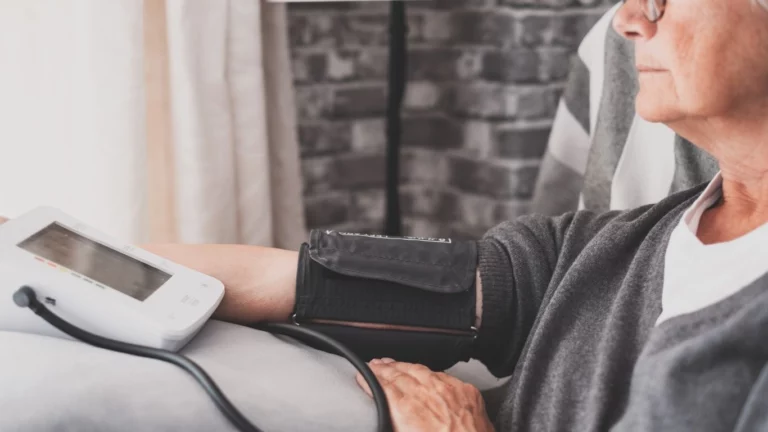Can Asthma Cause Nausea After Eating? Surprising Truth You Need to Know
If you’ve ever found yourself wondering, can asthma cause nausea after eating—you’re definitely not alone. I’ve heard this question countless times from patients during my shifts as a Pulmonary Nurse. It’s not one of those textbook symptoms that get a lot of attention, but it pops up more often than you’d think. After a heavy meal, or even just a quick snack, some people with asthma report bloating, queasiness, or full-blown nausea—and it’s not just in their heads. So, let’s talk about it. Let’s break down what’s really going on inside the body and why your lungs might be messing with your gut. Sound good?
How Asthma Affects the Digestive System

You’d be surprised how interconnected our systems are. When people think of asthma, they think lungs, wheezing, maybe a rescue inhaler or two. But asthma’s influence doesn’t stop at the respiratory system. In fact, there’s a fascinating (and kind of frustrating) overlap between the lungs and the gut that can affect digestion.
Here’s what I’ve seen: asthma can increase the likelihood of experiencing gastrointestinal symptoms—like acid reflux, bloating, or yes, nausea. This is especially common in folks who’ve had asthma for a long time or who take certain medications regularly. It’s not just about what you eat; it’s about how your respiratory system interacts with your digestive one.
Why Eating Triggers Discomfort in Asthma Patients
Think of your diaphragm like a trampoline separating your lungs and your stomach. When you eat, your stomach expands upward. Now, if you’re someone who already has tight airways or inflammation due to asthma, the added pressure from a full stomach can make breathing feel more difficult—and your body reacts. That pressure can lead to nausea, especially if you’re already feeling short of breath.
Here’s a little list I like to share with my patients who notice this:
- Overeating puts pressure on the diaphragm and lungs.
- Swallowed air from rapid eating or talking while eating can cause bloating.
- Increased mucus production during meals can trigger coughing and a queasy stomach.
- Post-meal reflux is more common in asthma sufferers, especially those on bronchodilators.
I’ve had patients tell me they get breathless just sitting down to eat, which leads them to panic slightly, and that anxiety can tip them over into nausea. It’s a domino effect—and once you’ve seen it play out a few times (like I have), it starts to make a lot of sense.
Understanding Gastroesophageal Reflux and Asthma

This is a big one. Gastroesophageal reflux disease (GERD) and asthma go together like peanut butter and jelly—except way less enjoyable. GERD is super common among people with asthma. I’d say probably half of my long-term asthma patients deal with it in some form. And if you’ve ever had reflux, you know how nasty it can feel.
Now, the question becomes: can asthma cause nausea after eating through reflux? The answer is: absolutely.
How GERD Feeds Into Asthma Symptoms (And Vice Versa)
So, here’s the cycle. Asthma makes your chest tighter, which puts pressure on your stomach. That can push stomach acid up into your esophagus. This acid can irritate your throat and even your airways, triggering a flare-up. And when your esophagus gets inflamed, your body responds with—you guessed it—nausea.
It doesn’t stop there though. Some asthma meds, especially bronchodilators, actually relax the lower esophageal sphincter (that’s the little valve that keeps stomach contents where they belong). That relaxed valve lets acid creep back up after you eat, especially if you lie down or bend over. Double whammy.
From my experience, the best way to manage this reflux-asthma duo is with a few consistent lifestyle tweaks:
- Eat smaller meals more frequently.
- Don’t lie down for at least 2 hours after eating.
- Avoid spicy or acidic foods if they’re triggers for you.
- Elevate your head when sleeping.
Trust me—these changes aren’t just fluff. I’ve seen patients cut their nausea episodes in half just by making small adjustments like these. And no, you don’t need to completely overhaul your life. Just a few smart changes can make a huge difference.
Asthma, Anxiety, and the Gut Connection

Let’s not forget the role your brain plays in all of this. Anxiety and asthma are tightly linked, and anxiety alone can trigger nausea. Add in the stress of trying to catch your breath while eating, and you’ve got a recipe for a stomach in knots.
There’s actually a well-documented relationship between the gut and the brain—known as the gut-brain axis. When you’re anxious or having trouble breathing, your vagus nerve (which runs from your brain to your gut) can signal your stomach to slow down digestion or even spasm. That’s when nausea hits. It’s not just psychological; it’s physiological.
What I’ve Noticed With My Patients
One thing I’ve always paid attention to is the body language of my patients when they talk about symptoms. When someone says, “I feel sick after I eat,” but they’re clutching their chest and not their stomach, that’s a clue. Their nausea isn’t necessarily about food—it’s about breathlessness or anxiety, or sometimes both.
Many people don’t realize they’re holding their breath while they eat or chew faster when they’re anxious. That leads to more swallowed air, a bloated belly, and—you guessed it—nausea. It’s all tied together.
Medications, Asthma, and That Queasy Feeling

Let’s talk meds for a sec—because honestly, this is one of the most overlooked pieces of the puzzle. Over the years, I’ve noticed a pattern with certain asthma meds and post-meal nausea. Patients will come in complaining of an upset stomach and never connect it to their inhalers or pills. But some medications can absolutely contribute to that uneasy, post-lunch wave of nausea.
Beta-agonists (like albuterol) are life-savers during an asthma attack—but they can also stimulate the GI system. I’ve had a few patients describe it like a “jittery stomach,” and that sensation often turns into full-blown nausea, especially if they’ve used their rescue inhaler shortly before or after eating.
Then there’s theophylline. Oh boy. This one is an old-school med, but it’s still used, especially in severe asthma cases. And guess what one of its most common side effects is? Yep—nausea. Not to mention headaches, irritability, and sometimes even reflux-like symptoms. If you’ve ever had a patient say they feel sick to their stomach after every dose—you’re not imagining it.
What You Can Do If You Suspect It’s Your Medication
Here’s what I tell folks when I suspect the meds might be the culprit:
- Track your symptoms: Keep a simple journal—what you ate, when you took your meds, and how you felt.
- Talk to your doc: Sometimes adjusting the timing or switching the medication helps more than you’d expect.
- Never stop taking your meds without professional guidance. I know it’s tempting when you feel crummy, but don’t.
I had one patient who swore she couldn’t handle her controller inhaler anymore—it made her nauseous all day. We switched the dose to bedtime instead of morning, and like magic, her symptoms disappeared. Sometimes it’s all about timing.
Can Asthma Cause Nausea After Eating? The Gut-Lung Axis Has Something to Say

Here’s where things get really interesting. There’s something called the gut-lung axis—and it’s basically a two-way communication system between your digestive tract and your respiratory system. Science is still catching up, but what we do know is that inflammation in the lungs can affect gut function and vice versa. And that could be part of the reason why people with asthma often deal with GI complaints.
This is one of those areas I’m constantly diving into because it’s evolving fast. More and more studies are connecting asthma with changes in the microbiome, increased gut permeability (aka leaky gut), and altered digestion. And again—this can all lead back to symptoms like bloating and nausea after eating.
What Might Be Happening Behind the Scenes
If you’ve got asthma, your body’s immune system is often on high alert. That chronic inflammation doesn’t just hang out in your lungs. It travels. It can influence digestion, mess with how you absorb nutrients, and even slow gastric emptying. The result? You eat a normal meal, and suddenly you feel bloated, sluggish, and borderline nauseous.
It’s not just “in your head,” and it’s definitely not something you should ignore. I’ve seen folks suffer for months before connecting the dots. Once we started supporting gut health—bam. Symptoms improved dramatically.
Practical Tips from the Floor: What I Tell My Patients

There’s no one-size-fits-all when it comes to managing asthma and post-meal nausea. But based on what I’ve seen work time and time again, here’s a toolkit I often share with my patients. Some of it might sound basic—but don’t underestimate how powerful these simple shifts can be.
- Eat slower: I know, I know—you’ve heard it a million times. But it really matters. Slower eating = less swallowed air = less bloating and nausea.
- Stay upright after meals: Gravity is your friend. Try not to lounge or nap right after eating, especially if reflux is part of your picture.
- Hydrate away from meals: Drinking a lot of water during meals can dilute stomach acid and mess with digestion. Try sipping in between meals instead.
- Mind your meds: As we talked about earlier, timing and type of medication play a big role. Chat with your provider if you suspect a connection.
- Don’t skip meals: This might sound counterintuitive, but skipping meals can lead to low blood sugar and make nausea worse when you finally do eat.
I once had a teenager with exercise-induced asthma and near-daily nausea. Turns out, he was skipping breakfast, using his inhaler on an empty stomach before gym class, then eating a huge lunch and feeling sick. We adjusted his meal schedule and inhaler timing—and voilà. No more mid-day nausea.
Foods That May Be Worth Watching
While everyone’s triggers are different, I usually advise folks to be mindful of these when they’re dealing with both asthma and GI symptoms:
- Dairy: Can increase mucus production in some people (though this isn’t true for everyone).
- Fatty foods: Slow digestion and can make reflux worse.
- Carbonated drinks: Fill your stomach with gas—literally.
- Spicy foods: Especially if reflux is already an issue.
It’s not about eliminating everything forever. I’m not a fan of overly restrictive diets. But if you’re asking “can asthma cause nausea after eating?” and you’re not tracking your meals, you’re missing some major clues.
Just keeping a 3-5 day food and symptom log can be eye-opening. I’ve seen people identify patterns they didn’t even realize were there. Sometimes it’s the simplest step that makes the biggest impact.
When to Be Concerned: Red Flags You Shouldn’t Ignore

Let’s be real—feeling nauseated now and then isn’t always a cause for alarm. But if it’s happening frequently after meals and you’re living with asthma, it’s worth paying attention to. There are a few red flags I’ve learned to watch for in my patients that go beyond the “typical” asthma-gut connection.
If you’re experiencing any of the following, it’s time to have a deeper conversation with your healthcare provider:
- Unexplained weight loss
- Severe abdominal pain that comes in waves or lingers
- Vomiting regularly after meals
- Chest pain that doesn’t feel like asthma or occurs after eating
- Blood in stool or vomit
Now, I’m not trying to scare anyone here. But these symptoms can point to other underlying issues like ulcers, GI motility disorders, or even food intolerances that get masked by your asthma symptoms. As a Pulmonary Nurse, I’ve had patients tell me their doctor brushed off their nausea for years, only to later find out something more serious was going on. Advocacy matters. Don’t let anyone minimize what you’re feeling.
Let’s Talk About Quality of Life (Because It Matters)

I’ve always believed that our job as healthcare professionals isn’t just to treat conditions—it’s to help people live better. And chronic nausea, even if it’s “mild” or “occasional,” can really chip away at your quality of life. I’ve seen it lead to social withdrawal (no one wants to go out to dinner if they’re constantly nauseated), reduced appetite, and even mental health struggles like anxiety or depression.
One of my patients—a sweet woman in her late 40s—used to skip family meals because eating triggered her asthma and made her feel sick. It got to the point where she felt isolated at every gathering. Once we worked together to better understand her triggers and adjust her routine, she started joining Sunday dinners again. And you could just see the difference in her spirit.
That’s why I’m such a big advocate of addressing these “smaller” symptoms. Because they’re not small at all when they’re affecting your day-to-day.
Creating a Personalized Game Plan
If this article has you nodding along, here’s what I’d recommend as a starting point for building your own strategy:
- Track your symptoms consistently: Not just nausea—but what you ate, when you took meds, your stress level, even your sleep. Patterns will emerge.
- Work with a provider who listens: Whether it’s a pulmonologist, gastroenterologist, or an integrative health practitioner, find someone who respects your lived experience.
- Experiment mindfully: Try adjusting meal size, med timing, posture after eating. But do it gradually—so you can track what actually helps.
- Consider a referral: If your nausea is persistent or interfering with your life, a GI specialist can run tests like endoscopy or motility studies to rule out other causes.
Living with asthma doesn’t mean you have to live with nausea. The two are connected, sure—but with the right approach, they can be managed together.
Final Thoughts on the Asthma–Nausea Link
So, circling back to our original question: can asthma cause nausea after eating? Based on years of bedside experience, a solid look at current research, and conversations with countless patients—yes, it can. But more importantly, you’re not powerless to fix it.
Whether it’s the meds you’re on, how your lungs and gut are communicating, or something as simple as the pace of your meals—there are ways to take back control. And you deserve to feel good after eating. No more powering through nausea and pretending it’s normal. It’s not.
Start small. Be curious. Don’t settle. And if you’re not getting answers—keep asking questions. That’s where the healing starts.
References
- National Center for Biotechnology Information
- Mayo Clinic
- Asthma and Allergy Foundation of America
- Cleveland Clinic
Disclaimer
This article is for educational and informational purposes only. It is not intended as a substitute for medical advice, diagnosis, or treatment. Always consult your healthcare provider with any questions you may have regarding a medical condition. The views expressed are based on professional nursing experience and should not replace individualized medical evaluation.

Bianca Nala is a compassionate Nurse Practitioner with a strong background in primary and respiratory care. As a health writer for Healthusias.com, she combines her clinical expertise with a talent for clear, relatable storytelling to help readers better understand their health. Bianca focuses on topics like asthma, COPD, chronic cough, and overall lung health, aiming to simplify complex medical topics without losing accuracy. Whether she’s treating patients or writing articles, Bianca is driven by a single goal: making quality healthcare knowledge accessible to everyone.







